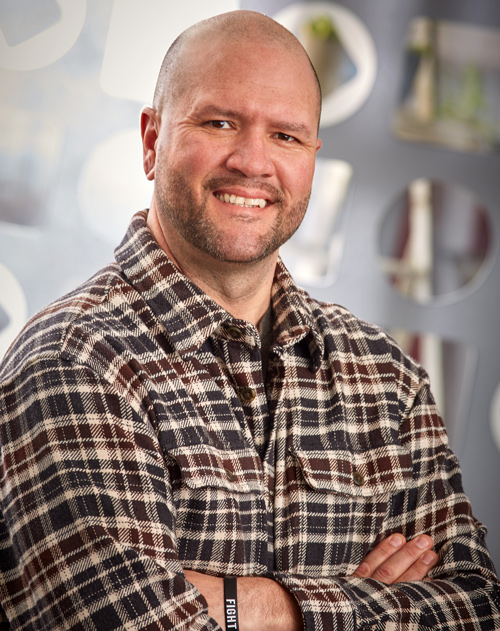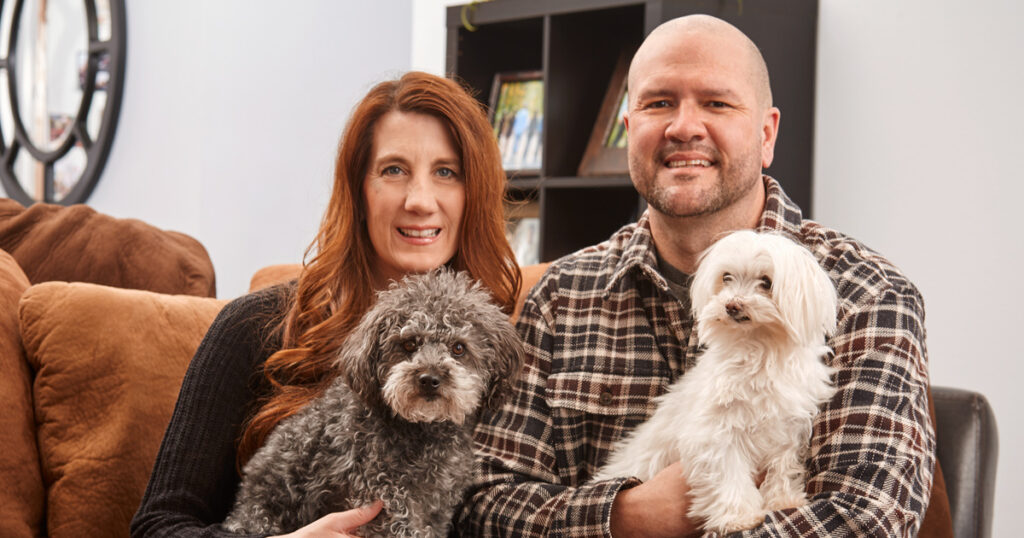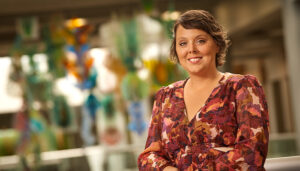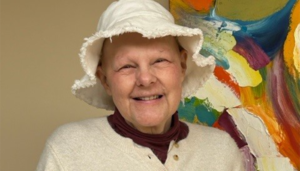Dave Strowmatt’s message is simple: “Listen to your body and get checked when something doesn’t feel right.”
He’s had experience. In September 2015, Strowmatt visited his family physician after dealing with some concerning symptoms. He was advised to get a screening colonoscopy, which led to the discovery of a large mass in his colon. He was diagnosed with stage 3 colon cancer at the age of 40. A few months into treatment the cancer spread outside his colon, progressing to stage 4. Unsure of what the future would hold, Strowmatt’s confidence and health was restored thanks to the coordinated care between the Nassif Community Cancer Center, UnityPoint Health – St. Luke’s Hospital and Physicians’ Clinic of Iowa. “The Community Cancer Center has been fabulous to work with. I wouldn’t go anywhere else,” says Strowmatt.
He has a family history of colon cancer, which made Strowmatt and his family candidates for genetic testing through the Community Cancer Center’s Genetics and Risk Assessment Clinic. Genetic testing is ideal for anyone with a cancer diagnosis as well as those with an increased risk of cancer. Participants work with the Community Cancer Center’s nurse practitioners, whose expertise meets the high standards of the American College of Surgeons Commission on Cancer.

Results showed Strowmatt has Lynch syndrome, a type of inherited cancer syndrome associated with a genetic predisposition to different cancer types. This means he had a significantly increased risk for developing colon cancer.
His brother, who has never had cancer, tested positive for Lynch syndrome as well. Through education and ongoing support from the Community Cancer Center, he is able to reduce his risk. “If you have a family history of cancer, get genetic testing done,” says Strowmatt.
Because genetic testing also showed Strowmatt to be at risk for developing cancer again, his journey will continue. He’s grateful to have gone through the genetic testing process with his family because it has enabled them to be proactive with their health. He plans to have his daughters tested as soon as they are 18 years old.
Are you at risk?
If you are concerned about your personal or family history of cancer, take our Genetic Testing Questionnaire to see if you may benefit from a consultation with our genetic professionals.







